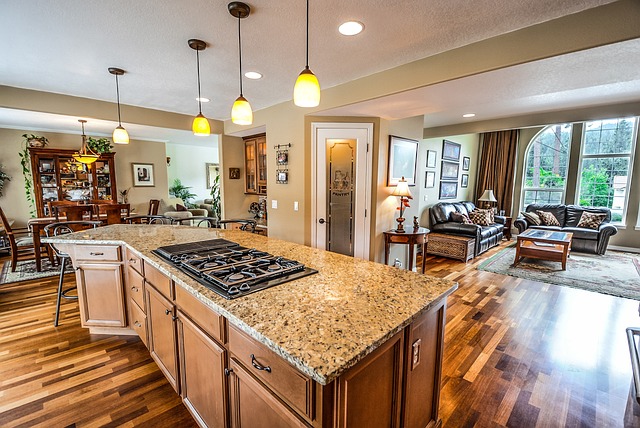While creating beautiful spaces, two terms often come up: interior design and interior decorating. While they are sometimes used interchangeably, they actually represent distinct disciplines with different focuses and approaches. Understanding the disparity between interior design vs. interior decorating is crucial for anyone looking to enhance their living or working environment.
In this comprehensive guide, we’ll delve into the nuances of both fields, highlighting their unique characteristics and the roles they play in shaping interior spaces.
Defining Interior Design
Interior design encompasses a broad spectrum of activities aimed at enhancing the functionality and aesthetics of interior spaces. It involves a meticulous process of conceptualizing, planning, and executing designs that meet the specific needs and preferences of clients.
Interior designers possess a deep understanding of spatial relationships, architectural principles, and design aesthetics. They are skilled in creating cohesive interior environments that harmonize with the overall architectural context while reflecting the client’s personality and lifestyle.
Exploring Interior Decorating
Interior decorating, on the other hand, focuses primarily on the surface aesthetics of a space. It involves the selection and arrangement of furniture, accessories, colours, and textiles to create visually appealing interiors. Interior decorators often work with existing architectural elements and layouts, concentrating on enhancing the overall look and feel of a room.
While interior decorating doesn’t typically involve structural changes or major renovations, it plays a crucial role in adding personality and style to a space.
Key Differences Between Interior Design and Interior Decorating
Here are some important differences for interior design vs. interior decorating.
Education and Training
- Interior Design: Requires formal education and training in architecture, design principles, spatial planning, and building codes. Interior designers often hold bachelor’s degrees and may be licensed or certified in some regions.
- Interior Decorating: While formal education is beneficial, it’s not always required. Many interior decorators gain expertise through hands-on experience, apprenticeships, or short courses focused on design fundamentals and styling techniques.
Scope of Work
- Interior Design: Involves comprehensive planning and conceptualization of interior spaces, including structural modifications, space planning, lighting design, and material selection.
- Interior Decorating: Focuses primarily on the aesthetic enhancement of existing spaces through the selection and arrangement of furnishings, accessories, and decor elements.
Client Engagement
- Interior Design: Requires in-depth consultations with clients to understand their functional requirements, lifestyle preferences, and design aspirations. Interior designers often work closely with architects, contractors, and other professionals to execute design plans.
- Interior Decorating: Involves collaborating with clients to refine their style preferences and select decor elements that align with their tastes and budget. Interior decorators prioritize aesthetics and visual appeal while ensuring client satisfaction.
Regulatory Considerations
- Interior Design: Subject to regulatory requirements and licensing standards in some jurisdictions to ensure public safety and adherence to building codes and regulations.
- Interior Decorating: Generally not subject to the same level of regulation as interior design, although decorators must still adhere to industry standards and ethical practices.
The Intersection of Design and Decoration
While interior design and interior decorating are distinct disciplines, they often intersect in practice. Many interior designers possess strong decorating skills and incorporate decorative elements into their design schemes. Likewise, interior decorators may offer design advice on layout and spatial planning within the scope of their projects. The synergy between design and decoration allows for holistic solutions that address both functional and aesthetic aspects of interior spaces.
FAQs
What qualifications do you need to become an interior designer?
To pursue a career in interior design, it’s advisable to obtain a bachelor’s degree in interior design or a related field from an accredited institution. Additionally, some regions require interior designers to obtain licensure or certification to practice professionally.
Is interior decorating more affordable than interior design?
Interior decorating typically involves fewer structural changes and renovations compared to interior design, which can result in lower overall costs. However, the total cost depends on various factors such as the scope of work, materials selected, and the expertise of the professionals hired.
Can I hire an interior decorator for a single room makeover?
Yes, interior decorators often offer services for single-room makeovers or smaller projects. Whether you’re looking to refresh a living room, bedroom, or home office, an interior decorator can help you achieve your desired aesthetic within your budget.
What’s the difference between an interior designer and an interior architect?
While both interior designers and interior architects work with interior spaces, their focuses differ slightly. Interior designers primarily focus on the aesthetics, functionality, and overall look of a space, while interior architects may be more involved in structural modifications, building codes, and spatial planning.
Do interior designers only work on residential projects?
No, interior designers work on a wide range of projects, including residential, commercial, hospitality, healthcare, and institutional spaces. They adapt their design expertise to suit the specific requirements and objectives of each project type.
How can I find a reputable interior designer or interior decorator?
To find a reputable interior designer or decorator, consider seeking recommendations from friends, family, or colleagues who have worked with design professionals in the past. You can also research online portfolios, read reviews, and schedule consultations to assess compatibility and expertise.
Conclusion
In conclusion, while interior design and interior decorating share some similarities, they represent distinct professions with unique focuses and skill sets. Interior design encompasses the holistic planning and execution of interior spaces, while interior decorating concentrates on enhancing aesthetics and visual appeal.
By understanding the differences between these disciplines, individuals can make informed decisions when seeking professional assistance to transform their living or working environments.
Tricity Property Searches
#Interior #Design #Interior #Decorating
